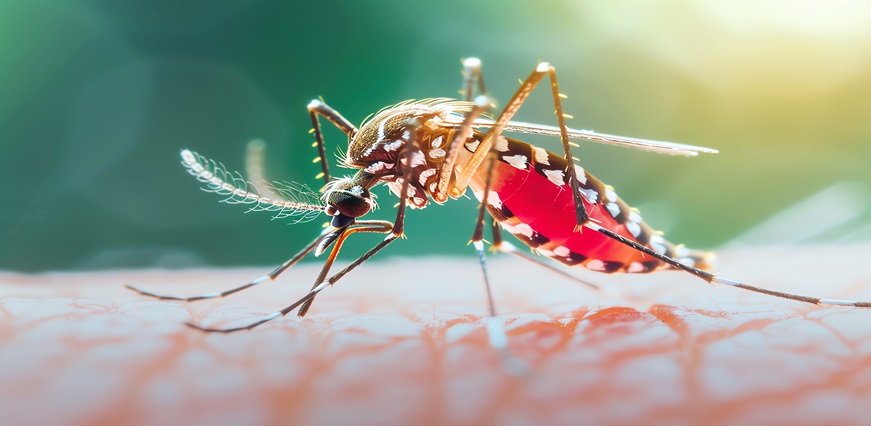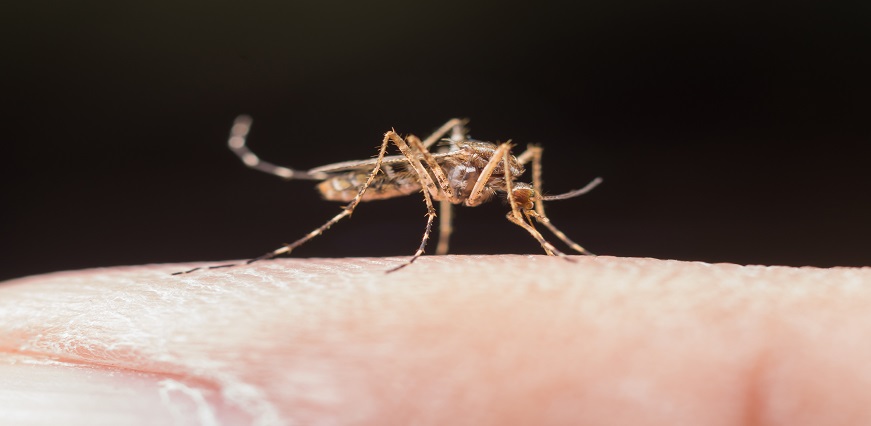

Home > Category > Dengue Test > Dengue Test in Agra
Showing 1 - 5 of 5
A dengue test is conducted to diagnose the presence of any of the 4 viral strains of dengue, namely, DEN 1, DEN2, DEN3, and DEN4. This is a blood test that helps in detecting dengue fever by analysing the blood sample of an individual for IgM and IgG antibodies. The primary purpose of getting this test is early detection of dengue fever so that treatment can be provided on time. Max Lab offers online booking of a dengue test in various cities and towns across the country. Moreover, dengue test packages are also available at reasonable prices.
Dengue is a mosquito-borne viral infection that spreads through the bite of infected Aedes mosquitoes found in tropical and subtropical areas worldwide. It can affect people of all age groups. It initially starts with flu-like symptoms but can result in severe complications if not treated in time. Dengue blood test in Agra looks for the dengue virus or antibodies made in response to dengue infection. Those having no symptoms but doubtful of the bite or an infection can also go for a dengue card test, a rapid and qualitative membrane-based test to detect dengue antibodies in blood, serum, or plasma.
A dengue test in Agra can be booked at a nominal price at a Max Lab near you.
The dengue fever test is prescribed by doctors to detect the virus, monitor the initial course of treatment and diagnose different cases of fevers. Also, a dengue blood test is suggested if a person is down with fever, weakness, muscle pain, and other symptoms of dengue, such as:
• Severe headache
• Sudden high fever
• Difficulty breathing
• Restlessness
• Joint and muscle pain
• Rashes on the face
• Nausea and vomiting
• Blood in urine and/or stools
• Fatigue and restlessness
A dengue lab test is the only way to confirm the infection. It is advised to consult a doctor who will prescribe a dengue profile test based on the person's symptoms to determine the exact condition. The doctor may also prescribe a dengue serology test for virus-specific antibody types - IgG and IgM to confirm the primary or secondary diagnosis. IgM is produced in the body around 5 days after infection.
Individuals who live in tropical and subtropical regions are at a higher risk of contracting dengue fever. This is because the spread of Aedes mosquitoes that spread the infection through their bite is prevalent in these areas. So, it is vital to get book a dengue test in Agra online or offline as soon as the symptoms present themselves in a person. Besides this, people who have recently travelled to tropical and subtropical countries and exhibit dengue fever should also be tested.
People who book a dengue test in Agra often start exhibiting symptoms after a couple of days of getting exposed to the Aedes mosquito. This is because the first few days of dengue fever are known as the incubation period in which little symptoms tend to occur in the body. Most individuals have a very high fever, headache, muscle pain, joint aches, swollen glands, and rashes. Nausea and vomiting are also common signs of dengue fever. Well-priced dengue tests are available at all diagnostic centres of Max Lab in Agra. it is best to get a blood test to detect dengue on time so that proper treatment can be provided. Also, Check - Dengue Symptoms in Child
There are several names for dengue tests because they have different purposes. When a person is at risk of getting dengue fever, they can book any of the following dengue tests and opt for an at-home sample collection service by Max Lab:
• Dengue NS 1 Antigen Test
This is the earliest type of dengue test on this list mainly because NS 1 Antigen is present on the very first day of dengue. Taking this into account, medical practitioners prescribe this blood test to detect dengue infection early on.
• Dengue IgG Test
Max Lab offers a dengue IgG test using the ELISA technique to detect IgG antibodies in the blood. It is also known as Immunoglobulin G Test. A dengue IgG test is used to check the severity of the fever in the early stages of the infection.
• Dengue IgM Test
After a persona has had dengue fever symptoms for a couple of days, they are suggested to get a dengue IgM test done at the nearest Max Lab diagnostic centre. This screening test is useful in detecting the count of IgM antibodies present in the immune system. The test reports can help a medical practitioner provide suitable medications to an infected person.
• Dengue RNA PCR Test
This is another dengue test that helps in monitoring the severity of dengue fever. A dengue RNA PCR test is conducted to look for the viral genome in the bloodstream. It is recommended to book a dengue RNA PCR test at Max Lab within the first 5 days of infection.
After understanding the names and purposes of dengue blood tests, it is crucial to know about the prevention of this viral infection. Here are some ways in which the risk of dengue fever can be reduced:
• According to the World Health Organization (WHO), the most useful method is to control the mosquito population in dense regions.
• Another method of prevention is to protect oneself from mosquito bites by wearing full-sleeved clothing, using mosquito repellents, and staying in air-conditioned zones during the daytime.
• Community awareness can further help in controlling the spread of Aedes mosquitos. Regular fumigation, removal of garbage, standing water, etc., can be the most effective ways to prevent dengue.
Individuals with dengue fever are generally given the same treatment as regular flu. This is because the symptoms of both viral infections are similar in nature. There is no specific treatment given to dengue fever patients unless their symptoms become very severe and critical. People who have a mild dengue infection are often prescribed over-the-counter medications to manage muscle and bone pain. Those who contract a severe form of dengue may require blood transfusions and supportive care in a hospital.
It is a simple blood test, so no special preparation is required. The doctor asks about the symptoms and details of your recent travels. If s/he suspects an infection, s/he will suggest a dengue blood test to confirm the condition. During the test, a healthcare professional will draw a small blood sample from a vein in one of your arms using a sharp needle. Later, the sample is sent to the lab for analysis.
Once you have checked the charges for the dengue test in Agra, it can be booked online from the official website of Max Lab. The report for the dengue fever blood test at Max Lab is generated within 24 hours of sample collection and can also be downloaded from its website. Once you collect the result, it is best to consult a doctor, who can diagnose the presence of dengue infection and suggest the right treatment or further tests if needed.
A dengue test is a laboratory diagnostic procedure used to detect the presence of the dengue virus or antibodies against it in a patient's blood sample. Common tests include the NS1 antigen test for early detection of the virus, and IgM/IgG antibody tests to identify recent or past infections. PCR tests can also be used to detect the viral RNA.
Tests commonly done to diagnose dengue include:
Dengue fever is typically diagnosed based on a combination of clinical symptoms and laboratory tests. Here are the steps to identify dengue fever:
Individuals at risk for dengue are those living in or traveling to tropical and subtropical areas where Aedes mosquitoes are common. Lab tests such as the NS1 antigen test, IgM/IgG antibody test, and RNA PCR test can help diagnose dengue in symptomatic patients from these regions.
The first stage of dengue, known as the febrile phase, is characterized by a sudden onset of high fever, severe headache, pain behind the eyes, joint and muscle pain, nausea, vomiting, and a rash. This phase typically lasts 2-7 days.
A normal dengue report would typically show negative results for the dengue virus NS1 antigen and both IgM and IgG antibodies. This indicates the absence of active dengue infection or recent exposure to the virus. However, interpretation of the report should be done in conjunction with clinical symptoms and other laboratory findings.
The best treatment for dengue is supportive care, including rest, hydration, and pain management.

Dengue has become a global challenge, affecting a huge number of the populati...Read More

The virus that causes dengue fever is primarily present in tropical and subtr...Read More

Dengue is a mosquito-borne viral infection caused by the dengue virus. Also c...Read More

Dengue is one of the most debilitating mosquito-prone diseases prevalent in m...Read More